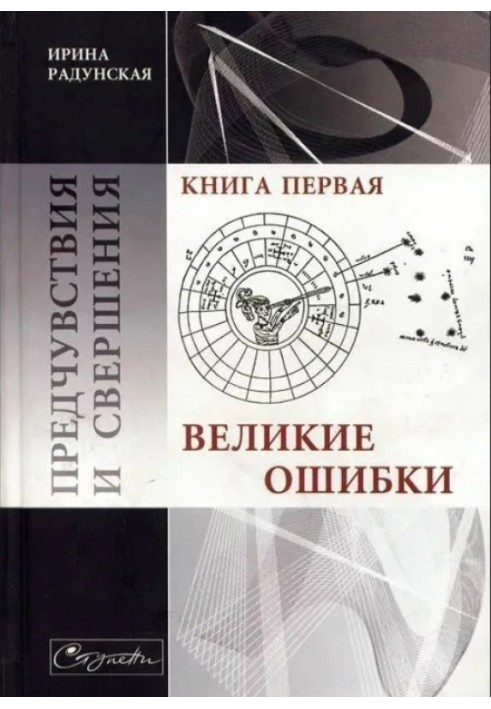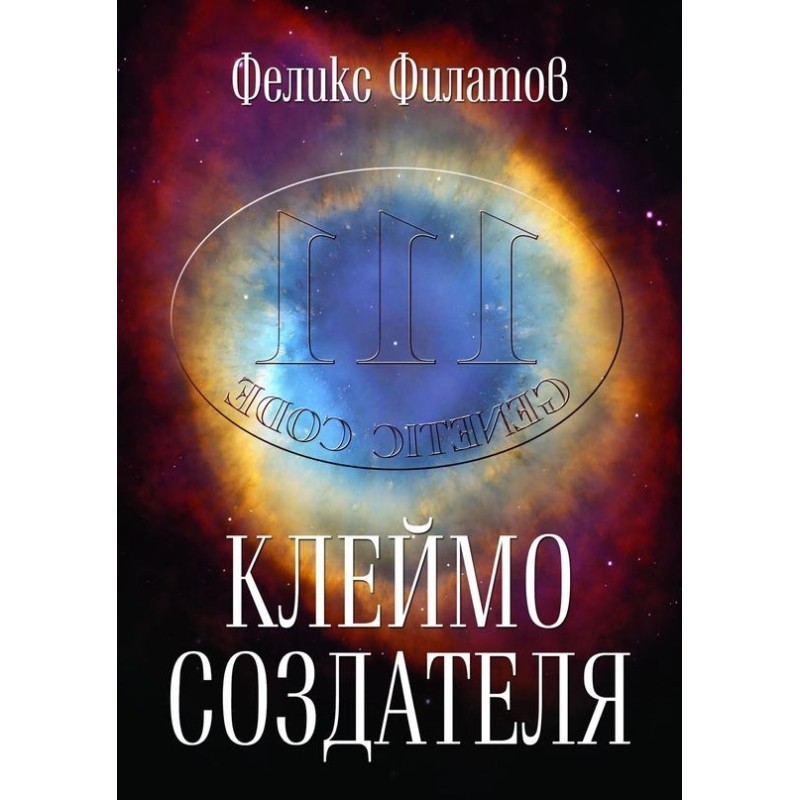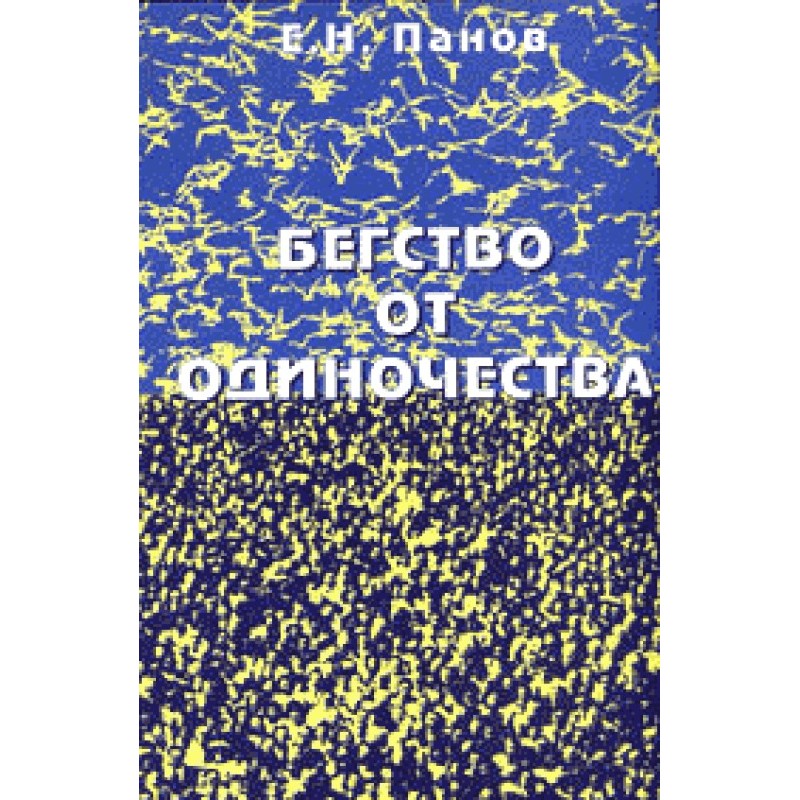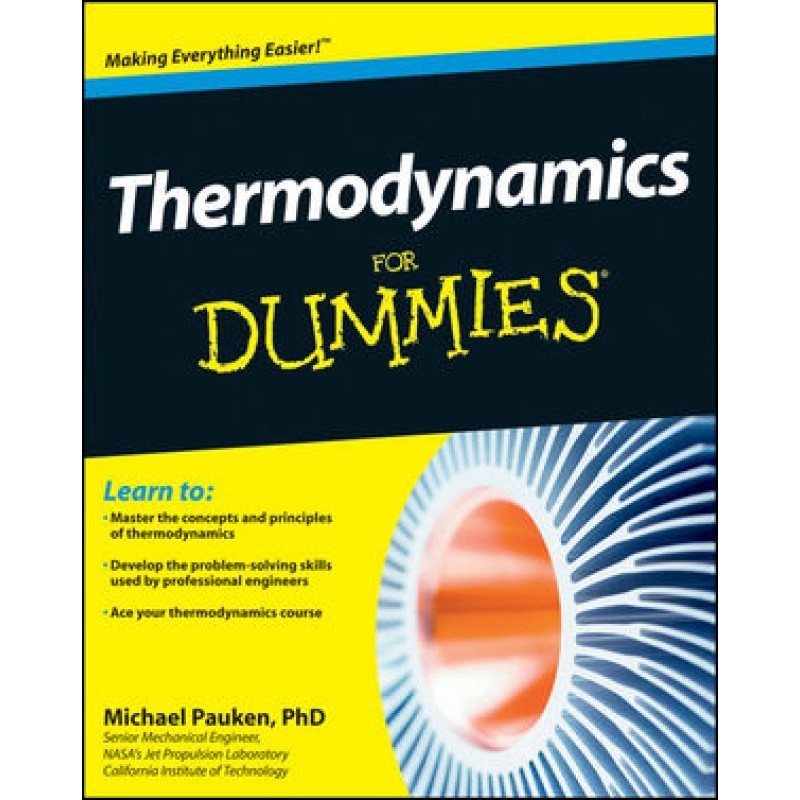Premonitions and accomplishments. Book 1: Great Mistakes
 Instant download
Instant download
after payment (24/7)
 Wide range of formats
Wide range of formats
(for all gadgets)
 Full book
Full book
(including for Apple and Android)
“The more you know, the more you have to learn.” /Lobsang Rampa/ The first part of the trilogy “Premonitions and Accomplishments.” The misconceptions of great scientists are the plot of this book. Some erroneous theories have persisted for centuries. They stimulated thought, forcing us to look for a way out of the dead end. All progress of mankind consists of overcoming difficulties and errors. Irina Radunskaya’s book “Premonitions and Achievements”, like her previous books - “Crazy Ideas”, “Transformations of the Hyperboloid of Engineer Garin”, “The Collapse of Paradoxes”, “Axel Berg - a Man of the Twentieth Century”, “Quants and Muses”, “People and robots”, “Cursed Questions”, “Quintessence”, talks about people whose life was unthinkable without science. Collected in one book are three parts of the trilogy “Premonitions and Accomplishments”: “Great Mistakes”, “Ghosts”, "Unity" tells in a dynamic and fascinating way the dramatic development of scientific ideas from ancient times to the present day. The first book, “Great Mistakes,” is about the misconceptions of scientists and the mistakes of science that served as a springboard for the rise of thought. The second book, “Ghosts,” tells about the power of human imagination, which penetrated into the microworld of the atom and the macroworld of space with the help of thought experiments and mathematical models - the method of abstraction, and the relationship between theory and experience. The last book of the trilogy - “Unity” - is about the amazing commonality of laws that permeate the life of nature, the paradoxical cross-connections of various fields of science, about the outstanding discoveries of our time at the intersections of different sciences, about the limitlessness of knowledge. "Great Mistakes" illustrate the misconceptions of scientists as a result of immature scientific experience. Science does not yet have such a powerful tool of knowledge as a targeted experiment. The correct criterion for sifting out the false from the true has not been found. Only Newton will teach the correct method: start with an experiment, test the result with theory and draw a conclusion after a verification experiment. The first volume, “Great Mistakes,” depicts an atmosphere of intuitive groping for truth. The second volume, “Ghosts,” is like the next stage in the maturation of the seeking thought, when imagination is connected to intuition. The scientist purposefully searches for a mathematical model of the phenomenon under study and draws on analogies from other fields of knowledge. This is the second circle of the “hell of knowledge”, a higher level of qualification of researchers. "Ghosts" talks about dreams that scientists can dream in order to imagine what cannot be observe. They judge the life of the invisible atom and distant space. And finally, the third volume, “Unity,” brings the reader to the modern level of spiritual maturity of human intelligence: awareness of the unity of nature, and, consequently, the unity of the laws of nature. The consequence is the possibility of attacking the next problems: using methods and knowledge obtained in other fields of science. Hence the different styles in the presentation of the books of the trilogy. “Great Mistakes” is written in a light, almost fairy-tale style. “Ghosts” takes into account the fact that the reader has grown up, matured, wised up in the process of reading the first book and can be entrusted with serious problems. He is already more experienced, sophisticated in understanding the drama of ideas. “Unity” is an equal conversation with the reader. The author calls on the reader to join the battle for true knowledge, for building modern oven of civilization. The hope, the expectation that the reader will devote his intellect to unraveling the still unsolved mysteries of nature. The author hopes that after reading the trilogy, the young man will be ready for independent creative activity and mature thinking. He will comprehend the logic of science and engage in the difficult, fascinating, all-consuming work of the mind - understanding the world. He will master new, not yet known rules of the game, the Game of Nature.
Data sheet
- Name of the Author
- Ирина Радунская Львовна
- Language
- Russian
Reviews
Досить цікава, але не без недоліків
Книга "Великі помилки" виявилася досить цікавою, але, на жаль, не без недоліків. Хоча автор намагається розкрити помилки вчених, деякі з прикладів виглядають занадто спрощеними. Я очікував більш глибокого аналізу помилок та їхнього впливу на розвиток науки. Проте, в цілому, книга читається легко і може бути корисною для тих, хто тільки починає знайомитися з історією науки. Можливо, наступні частини трилогії будуть більш детальними та захоплюючими.
Вражаюче поєднання науки та літератури!
Книга "Передчуття та звершення. Великі помилки" стала для мене справжнім відкриттям. Ірина Радунська майстерно поєднує наукові факти з захоплюючим наративом, що робить читання не лише пізнавальним, але й надзвичайно цікавим. Автор розкриває помилки великих вчених, які, незважаючи на свої недоліки, стали основою для нових відкриттів. Це нагадує нам, що помилки — це не кінець, а лише початок нового шляху. Я вважаю, що ця книга стане чудовим джерелом натхнення для молодих науковців та всіх, хто цікавиться наукою. Рекомендую всім, хто хоче розширити свої горизонти знань!
Надзвичайно пізнавально та захоплююче!
Я була вражена тим, як Ірина Радунська змогла перетворити складні наукові концепції на зрозумілу та цікаву історію. Книга "Великі помилки" не лише розповідає про помилки вчених, але й показує, як ці помилки стали поштовхом для нових відкриттів. Я отримала задоволення від читання і дізналася багато нового про історію науки та її розвиток. Це чудовий приклад того, як наука може бути цікавою і доступною для широкої аудиторії. Рекомендую всім, хто цікавиться наукою і її історією!
Цікава, але не завжди зрозуміла
Книга "Передчуття та звершення. Великі помилки" має свої сильні сторони, але іноді мені було важко зрозуміти деякі наукові концепції, які автор намагалася пояснити. Хоча я ціную намагання автора зробити науку доступною, іноді відчувалося, що деякі теми потребують більш детального пояснення. Проте, в цілому, це цікава книга, яка може зацікавити тих, хто готовий до глибшого занурення в науку.
Неперевершене поєднання науки та мистецтва!
Я в захваті від книги "Великі помилки"! Ірина Радунська вдало поєднує наукові факти з художнім викладом, що робить читання не лише пізнавальним, але й надзвичайно приємним. Книга спонукає до роздумів про те, як помилки можуть стати основою для нових досягнень. Я вважаю, що ця книга повинна бути в бібліотеках кожного навчального закладу, адже вона надихає молодь на дослідження та відкриття. Чекаю на наступні частини трилогії з нетерпінням!



























